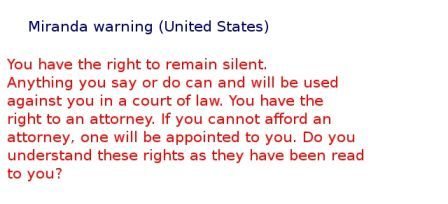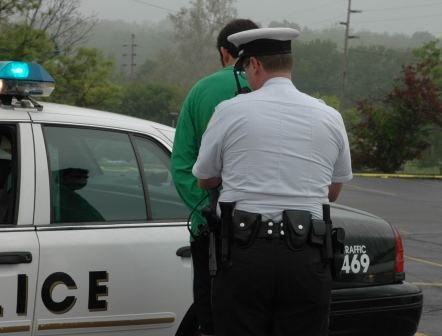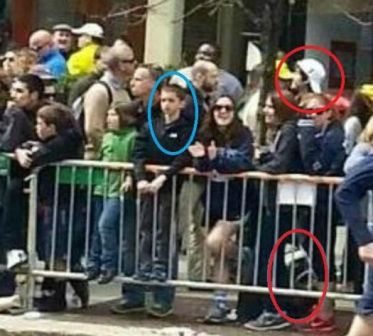Miranda: The Public Safety Exception
The premise is simple, whenever a criminal suspect is in custody, and prior to interrogation (questioning), he/she must be warned of his/her rights as set by Miranda. Police may question the suspect(s) only after the person in custody acknowledges that they understand those rights and voluntarily choose to waive them. In addition, suspects may choose to invoke their rights—remain silent, request to speak to an attorney, etc.—at any point during the questioning, at which time the police must terminate the interrogation. The consequence for police not adhering to Miranda is great. Basically, no Miranda warnings = statements made by the suspect may not be used in court. Therefore, a confession to the crime(s) is totally worthless.
The U.S. Supreme Court, however, has ruled that there is one (only one) exception to Miranda, and that’s what’s known as the Public Safety Exception.
The Public Safety Exception to Miranda is simply this…law enforcement may ask limited and extremely focused questions without warning the suspect of Miranda, and the answers to those questions may be introduced in court proceedings. Under this exception, questions must be limited to facts relating to a specific and immediate threat to the safety of the public.
Now, invoking the Public Safety Exception does not mean that authorities have free reign to question a suspect about any and everything under the sun, including questions relating to the crime for which the suspect is currently being held.
The Public Safety Exception first came to light in a New York case involving a man named Benjamin Quarles who was a suspected rapist. The victim told police that she’d just seen Quarles enter a supermarket and that he was carrying a gun. Officers went inside the store, and, after a brief foot chase up and down the aisles, captured Quarles. When officers searched Quarles they didn’t find the weapon. Therefore, worried that a loaded gun was somewhere within the public area of the store, and that anyone, including a child, could be harmed, officers immediately asked Quarles what he’d done with the weapon. The rapist indicated the gun was near some milk cartons and said, “The gun is over there.” Indeed, officers found the weapon and then read the Miranda rights to Quarles before asking questions pertaining to the alleged rape.
The trial court excluded Quarles’ statement about the gun, and the possession of the weapon, because officers didn’t advise him of his rights prior to asking about it. Appellate courts also agreed with the lower court’s ruling. However, the U.S Supreme Court first found that Miranda is not a right according to the constitution. Instead, the court stated, Miranda is designed to provide protection for the Fifth Amendment privilege against self-incrimination. And, on this basis, they decided the very public location of the weapon posed an immediate threat to public safety, and that officers had acted appropriately by asking questions that were prompted by a reasonable concern for the safety of the general public. Once the gun was located and the immediate threat was over, officers then proceeded with the initial investigation of rape, by first advising Quarles of his rights according to Miranda.
Since Quarles, the Public Safety Exception to Miranda has been used successfully on numerous occasions where the safety of the public was of first concern. For example, U.S. v. Khalil, U.S. v. DeSantis, and U.S. v. Mobley. And, the Exception is successfully utilized even after a suspect asks to speak to an attorney. Again, though, this ruling only pertains to an immediate threat to public safety, including the possibility that explosives may be hidden somewhere where citizens may travel or congregate, such as the current case of the Boston Marathon bomber.
In the Boston case, interrogators want to know if more bombs and other weapons exist. They also need to know if more people are involved in the recent bombings. If so, it is of immediate concern that officials locate them and stop possible new attacks.
However, at no time will the questioning move outside the very narrow scope of an immediate threat to public safety. Once the topic does move toward Dzhokhar Tsarnaev’s current criminal charges/case, investigators will then advise him of the Miranda warnings.
The Public Safety Exception is not new, nor was it concocted during the drafting of the Patriot Act. In fact, the Exception has been in place for nearly 30 years, since the Supreme Court ruled on the Quarles case in 1984. So, no one can blame either of the Bush’s, Carter, Clinton, or Obama. Reagan was in office at the time the ruling was handed down on the Quarles case.
Honestly, I can’t, for the life of me, understand why so many people are so upset that the FBI has elected to invoke the Public Safety Exception in the Boston bombing case. The suspect’s rights have not been violated, nor will they be. He’s receiving top of the line medical care (that particular hospital saved my butt after doctors told me the end was near and that I needed to prepare for it and get my personal affairs in order).
Besides, no matter how sweet, young, and innocent Dzhokhar Tsarnaev may look in his photos, he knowingly, willingly, and without care for human life, placed and detonated a powerful and deadly bomb at the feet of children. Then the terrorist (yes, he’s a terrorist) returned to school the next day. He was also seen partying with friends later that night. No remorse whatsoever for the carnage and destruction he and his brother caused just hours earlier. And we all know that later he and his brother ambushed and murdered one police officer, severely wounded another, and injured several more during shootouts and additional bombings.
Blue circle – 8-year-old Martin Richard. White hat – Dzhokhar Tsarnaev. Bottom red circle – probably the bag containing the pressure cooker bomb that killed Richard.
The Tsarnaev brothers killed and injured many. And it’s possible they were involved with others who are standing by, ready to do the same, perhaps at your child’s ballet recital, or at your son’s homecoming football game.
To those of you who are complaining about the treatment provided to Dzhokhar Tsarnaev, I ask, would it be different if the dead and brutally maimed were your family members? Or, would you set aside the murder and maiming of your loved ones to protest a perfectly legal and just questioning of your child’s murderer? Wouldn’t you want authorities to prevent the death of other innocent people?
And, so what if the younger brother was a follower of his older brother. Dzhokhar is a man. An adult who is enrolled at a Boston college. He’s intelligent according to his friends. Therefore, he knew he was about to commit murder when he placed that bomb among innocent people. The United States welcomed him with open arms when he and his family needed somewhere safe to live. And this is how he repays us?
Personally, I’m still hurting inside for the strangers (to me) who were hurt and killed in the attack. However, I feel no pain for either of the Tsarnaev brothers. And I’ll never forget what they did to their victims, to the city of Boston, and to our country.
As far as invoking the Public Safety Exception…well, Dzhokhar should be very happy that he’s in the custody of U.S. law enforcement and not somewhere else in the world where he’d be stoned to death or tortured until he died a slow and painful death. I honestly don’t think a few words will hurt him as much as having his brains bashed out in a public square. He should be thankful that the country he apparently hates so much is the country that’s now providing the care that’s keeping him alive. It’s what we do. That’s how we roll.
Also, I hope this is a lesson to others out there who may be thinking of planning a future attack on Boston. It’s the only city in America I know of that will simply shut down everything to hunt down and capture one guy who “effed” with their people. Even the mayor of Boston checked himself out of a hospital and showed up in a wheelchair to do what he could do to help out.
You go, Boston!
*When I say Boston, I’m talking about the cities of Boston, Cambridge, Waltham, Watertown, Belmont, Somerville, etc. They all touch, and they’re all one big and proud family.






